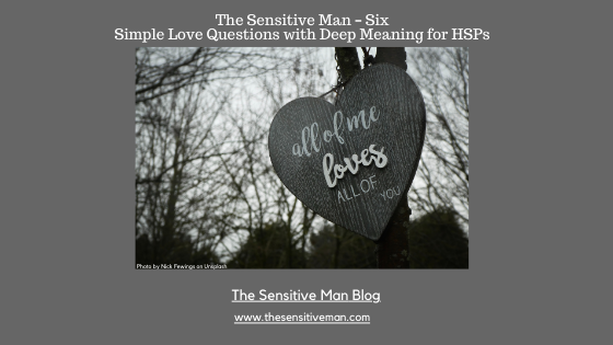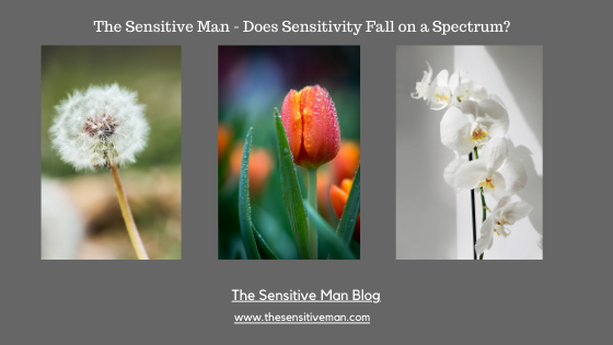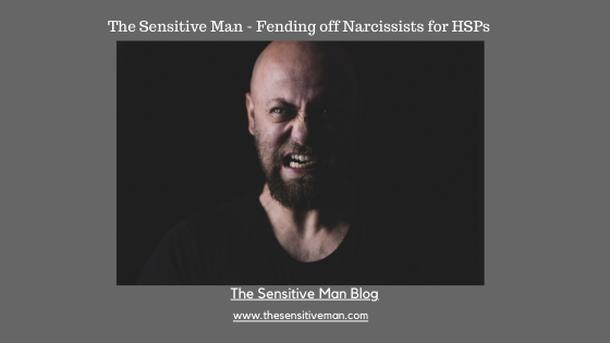|
A Blog about Sensory Processing Sensitivity from the Worldview of a High Sensing Male Oh, how I wish there were a simple, logical, algorithmic formula to discern who we are most compatible with in matters of love. The little heuristic would be a goldmine proposition if it were reliable, valid, and portable. HSPs especially need assistance because we often are too trusting and too empathetic to be objective in finding the perfect match. It's hard to get to the core values of a person, know their heart, and trust they are right in a short time, leading to a deeper emotional commitment. Dating site bios are virtually worthless, as most people (and, yes, I've done this too) pad their life story to make them seem better than they are. Let's face it; it's a marketing ploy we all use. Because HSPs are tenderhearted people and often naïve about love, we are easily duped by potential amours that ultimately don't understand us or use and manipulate us. Although there is now a measure of the Capacity to Love, it is not something you would or should filter through every future date. Yet, the truth is there is no foolproof bullshit detector in love that you can carry like a Geiger counter to detect radioactivity in a potential partner. However, I have found that by creating my personal red flag questionnaire, I can at least hold the love interest through the light of my internal prism and get some measure of whether we might be compatible companions. This list is not comprehensive but might serve as a starting point in considering someone new. You can add to these or craft them more to your individual experience and liking. Question #1 – Can the person you are interested in say, "I'm sorry." (Emotional Maturity) Admitting guilt when making mistakes is a "big" adult thing. It signifies emotional maturity and signals that a person is willing to accept fault to patch up a disagreement. Psychologist Rick Hanson suggests that admitting fault cuts through the ego gesturing, reducing stress and anxiety, allowing moving on to other matters, and showing a commitment to being mindful of the mistake and a willingness to correct it. This critical gesture is essential in relationships, especially for HSPs. We HSPs often take the lead in apologizing for our mistakes in arguments or disagreements. It is a gesture of goodwill and a willingness to bring to an end a messy emotional situation. However, if we are in relationships with others less forthright about guilt admission, this could signal problems later on down the road. The idea of being held hostage to a disagreement means to an immature other that you don't love them and may lead to devaluation of you in their eyes. This situation shapes a conditional love that for HSPs causes us to devalue ourselves. This often leads to gaslighting, shaking confidence in oneself, and doubting the other's love of you. Emotional maturity is vital here. What you are looking for is someone who takes responsibility for their actions. They must have the humility to admit when they are wrong, willingness and commitment to find compromise when needed, be supportive emotionally, controlling their impulses, and being trustworthy. When you find a person who can readily admit they are sorry in a heated disagreement, you have found someone displaying the earmarks for emotional maturity. This is a good indicator that this is someone that holds promise. Question #2 – Do your political beliefs align? (Self-ideology or Identity Manifestation) A political question may seem to be a lethal question to ask a potential partner in today's bifurcated and polarized political landscape. But, here are a few points to consider when asking about political views:
Naively, I think HSPs believe that something like political beliefs can be gently shaped and aligned with their own opinions or achieve a compromise with love and understanding. But viewed through a hardened political lens, feelings can be affected. The deeper you go in the relationship, difficulties arise, not just on political matters but also on the emotional reasons these view attachments have. Political beliefs get to the heart of core values, and for HSPs, core value alignment is a key to relationship success. This simple question almost always runs deep and possesses key indicators about a person's personality and emotional status. It is easier to reach a compromise with an open-minded individual if you hear can each other. But beware of the close-minded political hack. Question #3 – Do your spiritual or religious beliefs align? (Deep Self-Identity) For many people, this may be negotiable, and it mostly depends on how deeply entrenched and affixed you both are to your spiritual/religious beliefs. It may depend on the degree to which each partner is open-minded to the idea that there are no absolutes regarding spirituality. You can imagine an Evangelical Christian dating a hard-core atheist or an eclectic New Ager dating a scientific materialist who sees spirituality as foolish and a waste of time. You can easily see where the problems will materialize. Since spiritual beliefs or lack of spiritual beliefs sit deeply within us, this is important in relationships. It often depends on where you are in life and whether this may cause issues, such as raising kids, ideas of morality, afterlife beliefs, etc. Many people have experienced profound and successful relationships with others who have different spiritual views, and for some, this does not rate highly in mate selection. Nevertheless, the spirituality perspective may affect how a person's morality plays out. It may indicate deep beliefs that shape how one treats others, what love means and who one can love. It also reflects how close-minded or open-minded a person can be. Be mindful that compromise is a part of every relationship, and you have to ask yourself how much you have to compromise on spiritual matters that may affect you. One religion or spiritual view might be incompatible with another, so stay open-minded, but remember there is more to this than just the affiliation to a belief. Question #4 – What is their relationship with their parents and primarily with their mother? (Foundational Emotional Matters) To me, this is a fundamental question. Why? Very simply, our parents are the first adults we bond with in life. They are the first people to teach us about love, caring, and nurturing. They are our first template for love, especially the mother. Often, I have found that prospective partners with complicated or non-active relationships with their mothers (and fathers) often have difficulty in love as adults. Without that early critical bonding experience, they are less likely to grow up to be happy, loving, and resilient adults. They may also grow up to have emotional problems that will naturally affect the outcome in adult love relationships. By understanding your potential partners' current relationship with their parents, you are getting insight into how they may form love bonds with others. If the connection is good with the parents, chances are excellent these individuals are well adjusted and capable of giving and receiving love. If the parents are cold, distant, controlling, and unaffectionate, this will have affected your amour on views of what love looks like, feels like, and acts like. Granted that relationships change over time and that sometimes fallings-out occur later in life between parents and children. Life circumstances may alter these relationships as well. The germ of this seed is in the early formative years with parent and child. This early time is the critical bonding period and generally shapes the parent-child relationship for life. All of this should manifest in how affectionate, how expressive in love a person displays. If they acknowledge you and are willing to show and give love, it should be something that surfaces early in your relationship with them. A person who lacks these qualities may be a person you might want to bypass. Put down your therapist hat and move on. You likely will not be able to fix their problem. Question #5 – Do they listen to you? (Interactive Measure and Empathy) Being heard is very important to HSPs. Whether you are an extrovert or an introvert, it doesn't matter; at some point in your relationship, you will want to talk and be heard. And be acknowledged. Some relationships are identified by monologues and some by dialogues, but in the end, we all want to be heard, and the latter type of relationship is where we want to be. Does your love interest hear what you have to say? Do they actively listen to you, i.e., a conscious decision to listen to what you are saying? It seems we either listen to understand or listen to respond. Listening to understand is a deeper type of listening; it is more receptive and compassionate. Listening to respond implies a need to engage in criticism and be motivated by a need to correct you or fix you. One embraces, the other repels. One is deep; the other is shallow. HSPs seek meaning in just about everything, including relationships. It would be a natural desire for HSPs to form deep relationships, and the foundation for this is listening. If they are doing all the talking, well, you are not being heard. Empathy in part comes from communication. We are naturally good listeners. We need good listeners as partners. It is not a one-way street. Question #6 – Are they socially adaptable? (You, Me, and the World) Watch how your potential partner interacts with others. HSPs can be very chameleon-like when we interact in social settings. We are so tuned in to the environment; I think either for comfort or reconnaissance reasons, we adapt to our settings. Maybe it's a comfort thing, or perhaps it's to make others comfortable and make us relatable to them. We can shapeshift if needed. Looking for a partner that can do similarly, although maybe not critical to all HSPs, is crucial to me. I like to mix with mixed crowds and am not comfortable suffering partners that are snobs or find looking down at others as great sport. I try to stay humble with socializing and blend in and engage strategically and sometimes tactically. In networking for business, I like to seek out and find individuals with mutually beneficial contact. For pleasure, I tend to meet people strategically, basically learning from the new encounters with no specific goal in mind. With that said, I would prefer my partner, be able to do the same. How people treat others says a lot about how they will treat you. Look for kind, humble, and socially adaptable people. Granted, this is a simple reflection of how to gauge potential love interests. Your experience may frame similar or completely different questions. The point is to formulate what is essential for you in a partner. Each of us will have our own criteria, but we must know what these points are for each of us. And be astute observers. I recommend you read Dr. Elaine Aron's book on love and HSPs. You will learn a lot about the needs and interactions between HSPs and HSPs, HSPs and non-HSPs, and all combinations in between. There is excellent research (both her and her husband, Arthur) and real-world information in them. Good luck with your love search, be careful, be cautious, and, especially be particular.. You won't regret it. Please share your thoughts in the comment section.
0 Comments
A Blog about Sensory Processing Sensitivity from the Worldview of a High Sensing Male Like most personality traits, I have often wondered whether Sensory Processing Sensitivity (SPS) falls on a spectrum. And if so, is it possible for us to move up and down on the spectrum with life experience and age? If the trait is even moderately fluid, how would that affect highly sensitive people? Lately, a developmental model for children has gained some traction in describing sensitivity generally in all people. It uses a simple flower metaphor to describe the degree to which individuals adapt to or are affected by the environment. Dandelions, known for their hardiness, represent the most adaptable yet least sensitive individuals. Next is represented by tulips, which are the broad middle ground of people that fall on the broadest spectrum of adaptability and resiliency. Finally, there are the orchids, beautiful flowers, but ones that require the most significant attention and support. Both dandelions and orchids represent the two smallest population groups and are opposites. HSPs fall into the orchid group – no surprise there. Many of the foundational characteristics of this typology are genetically based. Some would argue that sensitivity is a well-established personality trait that remains stable over time. I agree that most HSPs are likely to remain consistently along the high end of the curve for sensitivity, which would not fluctuate drastically. But I wonder if the effects of environment and experience could not alter, even slightly, the degree of sensitivity we have over time. Let's examine this. Personality Theory on a Rope Most personality theorists would argue that personality traits tend to distribute on a continuum. Personality traits are recognizable aspects of an individual shown in various social and personal contexts that manifest in behavioral choices. Allport suggested that traits fall into a hierarchy from Cardinal (dominant traits) to Central (prominent characteristics) to Secondary (situational traits). We might assume that SPS would fall into the cardinal bucket, considering its influences on the HSP personality. Cattrell condensed the Allport theory and argued that individual differences influenced traits. He proposed a model of traits that employed a continuum to express each trait's "degreeness." Many of these traits proposed are described with polar opposites - high/low endpoints on the continuum (see Flower Model) with the largest representation in the middle. Later development of the Big Five Personality theory, which has considerable evidence-based validation, acknowledges that while personality traits are relatively stable over a lifetime, there is still some tendency to increase or decrease as life is experienced. This evidence supports the idea of a continuum of personality traits, with some degree of fluidity. However, it is essential to recognize that in some cases change comes as a function of the individual’s experience and not necessarily a function of the trait itself. How do SPS individuals stack up? Within the trait of SPS, is there some differentiation amongst the group? In other words, do highly sensitive people fall into a high highly sensitive grouping, a medium highly sensitive grouping, and a low highly (oxymoron?) sensitive grouping? If we look back at the Flower model, the suggestion that general sensitivity is a spectrum, from low to high, and that there is demarcation to separate groups along a bell-shaped distribution curve, could there not be a similar distribution within each distinct group? Could those individuals within the high sensitivity group also be broken down into finer buckets to delineate their degree of sensitivity? I think so. Environment plays a critical role in personality development, which enhances or detracts from personality traits and creates a wide swath of individual differences within humans. Life experiences might also increase or decrease how qualities are expressed over time, although not likely in large increments. Gene expression is often influenced by extrinsic environmental factors, which has given rise to the new field of epigenetics (See Bruce Lipton). Why could personality traits, which have a large genetic component, not also be affected by life, environment, and individual experience? Is there variability with the SPS trait? Some psychologists describe SPS in terms of overexcitabilities, or vividly lived experiences (see BLOG on Positive Disintegration Theory). A typology has emerged which classifies HSP individuals into five distinct groups – 1) Psychomotor (energetic leaning), 2) Sensual (sensory focused), 3) Intellectual (thinkers), 4) Imaginational (idea magnets, fantasy focused), and 5) Emotional (empathetic). The groups suggest variabilities within HSPs, and if you consider combinations of types within a single individual, you increase the variability as hybrids. Is there a polarity within the trait of sensitivity? It's interesting to think of the idea of a degree of sensitivity that could be measured along the line of empathy. For example, could there be a sensitivity dimension, tied to empathy, that ends with positive and negative poles of sensitivity? Positive sensitivity would represent HSP individuals with high degrees of empathy and sensitivity, and negative sensitivity might be low sensitive individuals with a corresponding low degree of empathy. Or could there be a polar end with negative sensitivity representing the spectrum where narcissists fall, with no empathy yet may be highly sensitive to criticism or other environmental cues? What about a dimensionality of sensing that might be measured along a line of adaptability or functionality, such as a low functioning sensitive or a high functioning sensitive individual? Not to suggest that HSPs are dysfunctional, but some with SPS do struggle with the trait. Is there a way to measure sensitivity on a scale? At present, I am not aware of a test for SPS that measures the degree to which you possess the trait. Dr. Aron's test, the current benchmark for sensitivity, does measure whether you likely are a highly sensitive person, but not necessarily to the degree, you have the trait. I understand that she is developing another test for SPS, so we can all look forward to that. Once we have something that can measure the degree of SPS, perhaps, we can test the trait's stability over time. That is if we do experience fluidity of the trait over our lifetimes. With that type of test, I also wonder if learning to throttle some of the traits would help moderate some aspects of SPS that may be uncomfortable. Although this type of testing may not be on the horizon, it might help with raising HSP children, counseling HSP individuals, and giving HSPs a way of measuring their trait depth. Depth, yeah, that's something HSPs would be interested in… Please share your thoughts in the comment section. A Blog about Sensory Processing Sensitivity from the Worldview of a High Sensing Male
There has been a lot of talk lately about narcissism and dealing with narcissistic personalities. Some very prominent people have been described as narcissistic, which has given some additional focus on this personality disorder. It has been postulated that highly sensitive people easily fall prey to narcissists, and there is good reason to believe there is truth to this claim. Because HSPs are generally very empathetic and tend to be drawn to people with problems, the narcissist can usually very easily manipulate a trusting and empathic, sensitive person. Yet, this term is often misused and overstated to describe a normal person who is situationally devious, unkind, or just emotionally manipulative. The actual percentage of the population with Narcissistic Personality Disorder (NPD), and by that, I mean consistently narcissistic, is relatively small, typically between 1-6%. Let's explore what this can mean to HSPs and for HSP relationships with narcissists. What is a Narcissist? The classic DSM-V definition for a narcissist is a personality disorder primarily characterized by a long-term pattern of exaggerated feelings of self-importance, an excessive craving for admiration, and struggles with empathy towards others. The exact causes are unclear, but evidence suggests that it is both a product of nature and nurture, part genetic part environmental. Narcissistic individuals have personality traits that display a sense of entitlement, grandiosity, and a need for attention, without much regard for others. They often show fantasies of their unlimited success or power, believe that they are special or gifted, are master manipulators, and are demonstrably arrogant. Many successful people may display some of these same characteristics. However, only the true narcissist makes the traits inflexible and maladaptive. Men tend to display this disorder slightly more so than women. Within the trait, there are several subtypes, including overt and covert narcissism. Overt narcissism is generally easier to detect because many of the NPD traits can be easily observed. Covert NPD is a bit less observable and can be more subtle and stealthy. Covert narcissists tend to be more introverted, while overt narcissists are louder, more arrogant, and outwardly disregard others. The covert narcissist more easily dupes many people because of the subtle methods of manipulation. Surprisingly, some covert narcissists are very sensitive people. I believe some HSPs are wrongly accused of being narcissistic because of HSPs' reactivity to criticisms, sudden mood changes, and the tendency towards deep thought, which appears to be aloofness. Preston Ni suggests that some classic narcissists display high sensitivity to criticism, confrontation with their self-image, rejection of their sense of entitlement, and refutation of their self-image. This reaction may add to the belief that some narcissists can be HSPs. The complicated relationship between HSPs and narcissists HSPs appear to be particularly vulnerable to narcissistic manipulation. Sensitive people's trusting and empathetic nature would make them more prone to falling to clever deception, especially from someone who cleverly builds trust first. In many narcissistic abusive relationships, a degree of co-dependency can develop between the narcissist and the victim. This dependency could more easily develop between a covert narcissist and a vulnerable HSP partner, and, at times, a narcissist can even exhibit some degree of compassion. The HSP might then harbor hope for the relationship, which only prolongs the engagement. In many ways, the HSP represents a shadow self to the narcissist, a dysfunctional compliment, the opposite other. Because HSPs love to help and aid their partners, they fall trap in the never-ending cycle of fulfilling every need for their narcissist partner. This entrapment can lead to an unhealthy symbiotic relationship and emotional pain, which the narcissist cannot relate to or feel. How to deal with a narcissist if you are an HSP If you know that you are dealing with a narcissist, understand that they will be challenging to handle and very draining to your energy levels. Avoid trying to change them and release the naïve expectation that you will be the one that does change them. Expect pushback or even retaliation if you challenge or confront them. If you must confront them, do so in the presence of witnesses. If you find yourself in a relationship with a narcissist, surround yourself with supportive people. To get out of a relationship with a narcissist, learn to set boundaries and stay firm on them. Do not take the pushbacks and attacks personally; recognize that it's their problem, not yours. This may require compartmentalizing your feelings as you deal with the confrontation. You can loop back later and deal with the emotions. Stand up for yourself and if the relationship is abusive – get distance between you and them. Be safe first. Narcissists rarely seek professional help. They don't, can't, or won't see the need for treatment, which is beyond their inflated self-image. It is often stated that narcissism is incurable; however, if the patient won't see the doctor, the treatment is useless. You can bet you won't be able to fix them, so don't try. My Personal Experiences My experiences with NPD are somewhat limited. I suspect I have interacted with individuals who display some of the traits of narcissism but not at the level of malignancy. People who act like narcissists or are narcissists, I tend to avoid – life is too short. Yet, some of these folks can be quite charismatic and alluring. People who have NPD can be cunning cult leaders and can lure many unsuspecting victims, looking for a charismatic and authoritative leader. The NPD individual feeds on the admiration and worship and designs creative manipulations to ensure their vulnerable and gullible flock's allegiance. Be wary. Anyone can fall prey. A final thought on HSPs and narcissists. In my book, Confessions of a Sensitive Man, An Unconditional Defense of Sensitive Men, I stated that I would have a hard time believing that HSPs would make effective narcissists. While I'm sure with the right combination of nature and nurture, it could happen, the core attributes of HSPs would make it difficult for sensitive people to abuse people without tremendous guilt and internal conflict. Our nature is to be empathetic, and to do less would present conflicting internal signals if we were to be ruthless and careless narcissists. Our hearts would not be faithful for long to the execution of that merciless task. Please comment about your experiences with narcissists. |
AuthorBill Allen currently lives in Bend, Oregon. He is a certified hypnotist and brain training coach at BrainPilots.com. He believes that male sensitivity is not so rare, but it can be confounding for most males living in a culture of masculine insensitivity which teaches boys and men to disconnect from their feelings and emotions. His intent is to use this blog to chronicle his personal journey and share with others. Archives
July 2024
Categories
All
|







 RSS Feed
RSS Feed
